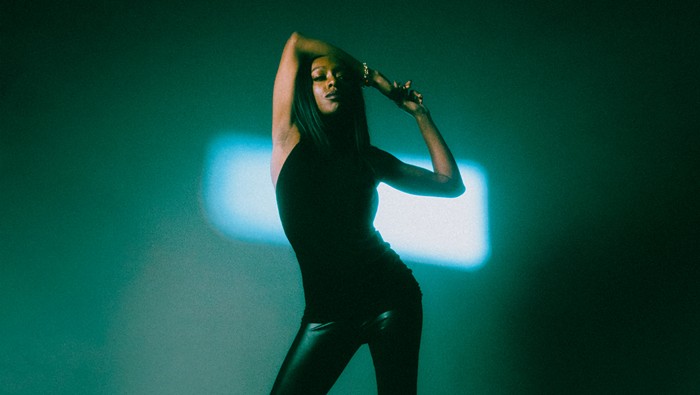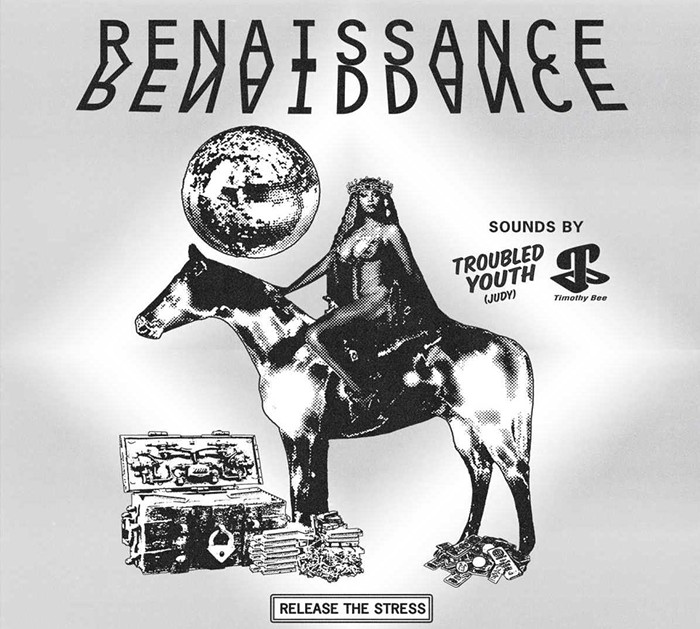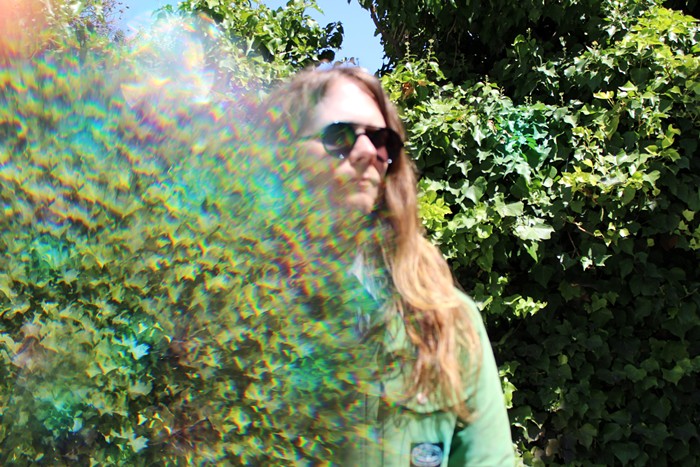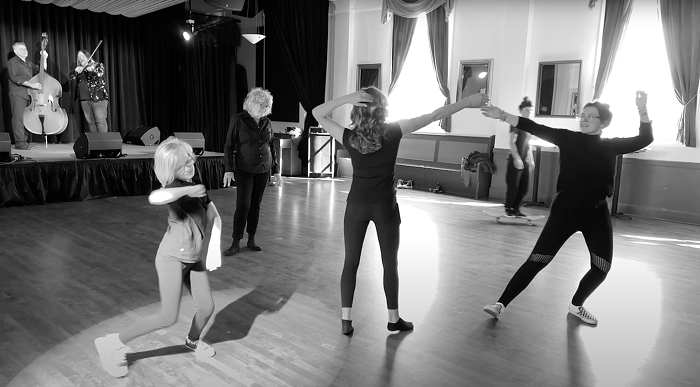This article is part of the Mercury's 2020 all-digital Queer Week coverage.

Neil Gust doesn't live in Portland anymore, and he hasn't since a relationship drew him out to the East Coast in 2005. But for music fans, the 51-year-old artist is still very much a local, thanks to the vital role he played in two influential indie rock bands: Heatmiser and No. 2.
Heatmiser is perhaps best known for helping introduce the world to Elliott Smith, the venerated singer/songwriter who provided the band with a good chunk of their melodic yet agitated material. But Gust was just as important to the sound of the group, and the songs he wrote were the perfect counterbalance to Smith's, wrestling as they did with romantic drama and trauma.
Gust carried those same themes forward with No. 2, the band he started after Heatmiser split in 1996. The two full-lengths that the group (which featured Gilly Ann Hanner on bass and Paul Pulvirenti on drums) recorded in the late '90s and early '00s finds elements of psychedelia and Americana curling in among the sharp-fanged rock.
As that band, and his interest in making music, faded away, and Gust started up a romantic relationship on the East Coast, staying in Oregon made less and less sense and he decamped to New York City. Recently, though, the itch to write songs became more acute, particularly after he visited Portland and was thrown a surprise 50th birthday party. Seeing all of his ex-bandmates and pals in one spot helped spur him to resurrect No. 2 and write new material.
From the sound of the first new music in 18 years by No. 2, Gust picked up right where he left off. The new single, released last week by Jealous Butcher Records, pairs a neck-snapping rocker about a relationship thrown into turmoil with a minimalist ballad that could be read as a final farewell to Smith.
With this new 7" and the promise of a new full-length, co-produced by Joanna Bolme and her husband (Gary Jarman of the Cribs), it was the perfect time to reach out to Gust in house in Connecticut where he and his two partners have been holed up since the start of the pandemic to learn more about the reunion of No. 2 and to get some perspective on his experiences as a gay man living in Portland.
MERCURY: How did the reunion of No. 2 come to pass?
Neil Gust: There was a period where I realized if I was going to make another record, I’d better start trying to do it. I always thought that I would but as the years were going by, I realized that I was getting farther and farther away from being able to do it. There was a confluence of turning 50. I realized, “Oh shit, I’m going to turn 50 and I’m not really doing what I want to be doing.” I was also given a surprise birthday party in Portland, and at that party, everybody that I played music with was there. Everyone said, “Yeah, we would love to play again.” It was kind of a dare. I just had to start getting it together. And it’s been about a year and a half since then.
Was it easy getting back into the mode of writing rock songs again?
None of it was easy. What I ended up having to do was sort of figure out was why the desire to do it was still there after all this time? I came to an understanding that I’d never really done what I always wanted to do, which was write the kinds of songs that I loved when I was much younger. Those are not punk rock songs at all. They’re the songs on the radio—more AOR things. I gave myself permission to try to appeal to my 14-year-old self and that made it a lot more fun.
When did you start recording everything?
I started recording demos in 2019 and sending them to Gilly and Paul. There was about five new songs. Then we decided that in August, we should try getting together and playing and see what happens. We played for a week and it was really fun. We decided the next thing would be to record, and I was talking to Joanna Bolme about it—she’d been a producer on our last two records. I asked her to do it again and she and her husband, Gary Jarman, offered to record us. So in November, we went into the studio in their house and recorded the single. And we also shot a video that week. I’ve gone back to Portland, and we recorded eight more songs.
As you know, this interview is going to be part of our Queer Week, and part of the reason I wanted to speak to you was to get your perspective on what it was like being a gay man in Portland during the years you were living here. Was it a mostly positive experience for you?
I never ran into any problems or prejudice. It was more that it was lonely. I wasn’t really in a relationship for most of the time that I was there. And this was before the Internet and the only way to meet people was to go out to bars, which were all on Stark Street [now Harvey Milk Street]. So every weekend, I would walk downtown and go to these bars, and most of the time never met anybody and then I would walk home. That’s what most of the No. 2 songs are about: walking downtown. It was probably for personal reasons. It’s not anything characteristic to the Pacific Northwest or anything like that. I ended up coming here because I’m in a relationship with two men and we’ve been together as three for over 18 years now. I met them while I was in Portland and they were visiting. Right now, I’m staying at their house in Connecticut, but normally we commute between New York and Connecticut.
Outside of the pandemic, do you live together permanently or do you have space of your own?
I have my own apartment in Brooklyn. We own property together and we’re together about four nights a week. Right now, we’ve been living together all the time.
Has that been a fairly comfortable thing for everybody—being together nonstop now?
I mean, it’s like any other relationship, you know? It’s tough to figure out but we’ve been together for a very long time. So the comfort level is kind of built into it at this point.
Do you have any thoughts on how Portland has changed for gay men compared to how it was when you were still living here?
There’s no longer a central place to gather, except online. When I come back to Portland, I’m only there for about eight to 10 days and I’m playing music constantly, so I haven’t had time to really explore. But I wouldn’t even know where to go to. None of the places I used to go as a gay man are there anymore. A lot of places have completely disappeared over the last few years, which has been crazy to see.
I had one final, unrelated question. This year marks the 25th anniversary of the release of Elliott Smith’s second solo album. It came out during a time when Elliott was still playing music with you in Heatmiser. How was it for you to see him branching out on his own like that?
It was both amazing and really difficult. It was amazing because it was clear that, with that second record, he was exploding creatively. It was clear his process suddenly started to work really well. Heatmiser’s process was much different. It could be fraught at times. I think it was harder for him to be in Heatmiser than it was for him to do stuff by himself. To see him be so good away from the band was really difficult to accept and really understand. I was too young, and we weren’t really talking about it. It was a confusing time. He was saying that the band was still a priority. We moved to Portland to be in the band together. So once there were other things happening, we had to figure out how that was going to work and then it didn’t.


















